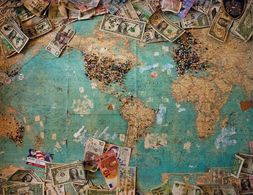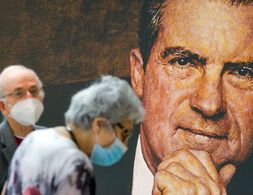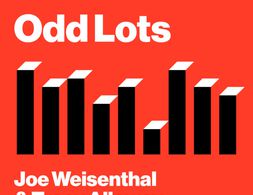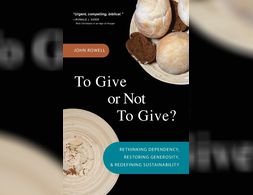✕
39 results
The authors analyse the role and effects of the US dollar as factual global reserve currency. They demonstrate that a flight into the dollar creates adverse effects for the global economy as it represents a tightening of financial conditions.
This episode from Odd Lost podcast with financial analyst Zoltan Pozsar features a discussion on the potential long-term financial effects of the Ukraine-Crisis on dollar and the global currency system centered around it.
The piece describes some of the effects that Nixon's decision to delink the dollar from gold in the 1970s had for the relationship between the IMF and its member states. A focus is on the negative effects of this change on societies in the Global South.
Florian Kern replies to Zoltan Pozsar's analysis about the effects of the war in Ukraine on the global financial order and refutes the latter's prognosis of the demise of the US dollar as the world's reserve currency
The novel coronavirus (Covid-19) is rapidly spreading around the world. The real economy is simultaneously hit by a supply shock and a demand shock by the spread of coronavirus. Such a twin shock is a rare phenomenon in recent economic history.
The Great Recession 2.0 is unfolding before our very eyes. It is still in its early phase. But dynamics have been set in motion that are not easily stopped, or even slowed. If the virus effect were resolved by early summer—as some politicians wishfully believe—the economic dynamics set in motion would still continue. The US and global economies have been seriously ‘wounded’ and will not recover easily or soon. Those who believe it will be a ‘V-shape’ recovery are deluding themselves. Economists among them should know better but are among the most confused. They only need to look at historical parallels to convince themselves otherwise.
The world has seen the emergence of a rather different system of international lender of last resort organized as a network of central bank liquidity swap lines largely limited to the core countries of the Global North In this system central banks swap their own currency for dollars which they …
The objective of the course is to explore the main strengths and weaknesses of orthodox and heterodox paradigms within development economics.
The Covid-19 pandemic has laid bare the deep structural rifts in modern capitalist economies. It has exposed and exacerbated the long-lasting systemic inequalities in income, wealth, healthcare, housing, and other aspects of economic success across a variety of dimensions including class, gender, race, regions, and nations. This workshop explores the causes of economic inequality in contemporary capitalist economies and its consequences for the economy and society in the post-pandemic reality, as well as what steps can be taken to alleviate economic inequality in the future. Drawing from a variety of theoretical and interdisciplinary insights, the workshop encourages you to reflect on your personal experiences of inequality and aims to challenge the way in which the issue is typically approached in economics.
MERCOSUR (Mercado Común del Sur or Common Southern Market) was the first formalized attempt to integrate South American countries economically and politically.
Approaching the law of nature that determines all forms of economy. The bulk of economic theory addresses the economic process by setting out on a catalogue of aspects, seeking the laws in the aspects and hoping to get together a reliable view of the whole.
Deforestation is estimated to be responsible for about 12-29% of global greenhouse gas emissions. This essay will explore ecological economics as an alternative lens through which to approach forest conservation and the acceleration of climate change.
Prof. Robert Guttmann looks at the current transformation of the international world order through the lenses of global money and finance.
It is perhaps fitting that the seriousness of the coronavirus threat hit most of the Western world around the Ides of March, the traditional day of reckoning of outstanding debts in Ancient Rome. After all, problems and imbalances have accumulated in the Western capitalist system over four decades, ostensibly since it took the neoliberal road out of the 1970s crisis and kept going along it, heedless of the crises and problems it led to.
This is an overview of (possibly transformative) proposals to address the economic consequences of the corona crisis
Currency hierarchy and policy space: A research agenda for development economics Barbara Fritz
With the onset of an economic crisis that has been universally acknowledged since the end of March, two main questions arise: To what extent is the corona pandemic the starting point (or even the cause) of this crisis? And secondly: can the aid programmes that have been adopted prevent a deep and prolonged recession?
Feminist economics is a key component of the movement for pluralism in economics and one that has, to some extent, been acknowledged by the mainstream of the profession. It seeks to highlight issues which affect women because (it claims) they have not traditionally been recognised in a field dominated by men. On top of this, it seeks to carve out a space for women in the discipline, both for intrinsic reasons of fairness and diversity and because it means that women’s issues are more likely to be highlighted going forward.
The plumbing of the financial system is coming under strain like never before. On this week’s podcast, we speak with two legendary experts on how the money system works: Zoltan Pozsar of Credit Suisse and Perry Mehrling of the Frederick S. Pardee School of Global Studies. They explain the extreme level of stress we’re seeing, what the Fed has done to alleviate, what more needs to be done, and what the post-crisis future may look like.
Why is money more valuable than the paper on which it is printed Monetarists link the value of money to its supply and demand believing the latter depends on the total value of the commodities it circulates According to Prabhat Patnaik this logic is flawed In his view in any …
That’s why it is time, says renegade economist Kate Raworth, to revise our economic thinking for the 21st century. In Doughnut Economics, she sets out seven key ways to fundamentally reframe our understanding of what economics is and does.
In "The Money Problem, "Morgan Ricks argues for a reform of the American monetary system. Taking up foundational questions of monetary policy, he asks: how would we construct a monetary system if we were starting from scratch? What are the characteristics of a monetary instrument?
Racism and discrimination have choked economic opportunity for African Americans at nearly every turn. In From Here to Equality, William Darity Jr. and A. Kirsten Mullen confront these injustices head-on and make the most comprehensive case to date for economic reparations for U.S. descendants of slavery.
This is an important contribution both to advancing theoretical and empirical understandings of African monetary sovereignty and to putting problems and possibilities relating to African monetary sovereignty on the political agenda This is of utmost importance given that these issues have largely not received much attention in contemporary discussions of …
Wealth inequality between Black and white people in the US barely has changed in the last 150 years. In her book "The Color of Money. Black Banks and the Racial Wealth Gap" Mehrsa Baradaran, analyzes why also Black banks have not successfully changed this and not enabled Black wealth on a broader scale.
How do Airbnb and short-term rentals affect housing and communities? Locating the origins and success of Airbnb in the conditions wrought by the 2008 financial crisis, the authors bring together a diverse body of literature and construct case studies of cities in the US, Australia and Germany to examine the struggles of local authorities to protect their housing and neighborhoods from the increasing professionalization and commercialization of Airbnb.
"First published more than a decade ago, Globalizing Capital has remained an indispensable part of economic literature. This classic book emphasizes the importance of the international monetary system for understanding the international economy. The second edition, published in October 2008, has consistently appeared on syllabuses since its release
This Blog Post describes the U.S. federal reserve money system from the perspective of the Modern Monetary Theory (MMT). Therefore it presents a theory of money creation, gives simple examples how this influences the economy and the historical process of why the monetary system of the US has developed this way.
Modern mission theory is guided largely by the three self paradigm that suggests indigenous churches can only be healthy if they are self-governing, self-propagating, and self-supporting. Consequently, Western missionaries, their churches, and their agencies have been increasingly indisposed to giving generously. We must rethink the interplay of dollars dependency and what it means to do the right thing with our money as we pursue twenty-first century missions.
This essay focuses on the sources of government revenue within the Middle East and North African (MENA) region and proposes the implementation of a regional tax reset through increased taxation and tax reforms, deregulation in the private sector and economic diversification to reduce macroeconomic volatilities caused by the hydrocarbon industry.
An essay of the writing workshop on contemporary issues in the field of Nigerian economics: The adverse effect of climate change is overwhelming, not just in Nigeria but globally. Global warming is the result of hostile human activities that have impacted the environment negatively. This is the principal variable the government should tackle through practical innovations such as the acceptable implementation of Adaptation Policies and also through the adequate implementation of environmental tax. These will enhance pro-environmental behaviour which is fit for socio-political and economic activities for sustainability.
Here we look at the effect of the 2008 Climate Change Act passed in Parliament in the United Kingdom as an effort to curb emissions in all sectors. The Act aside from setting goals to become a low-carbon economy sets up an independent committee on Climate Change to ensure the implementation of policies to comply with the ultimate goal of 80% reduction in total emissions in 2050. I make use of the Synthetic Control Method (SCM) to create a comparative case study in which the creation of a synthetic UK serves as a counterfactual where the treatment never occurred (Cunningham, 2018).
We use cookies on our website. Click on Accept to help us to make Exploring Economics constantly better!






























